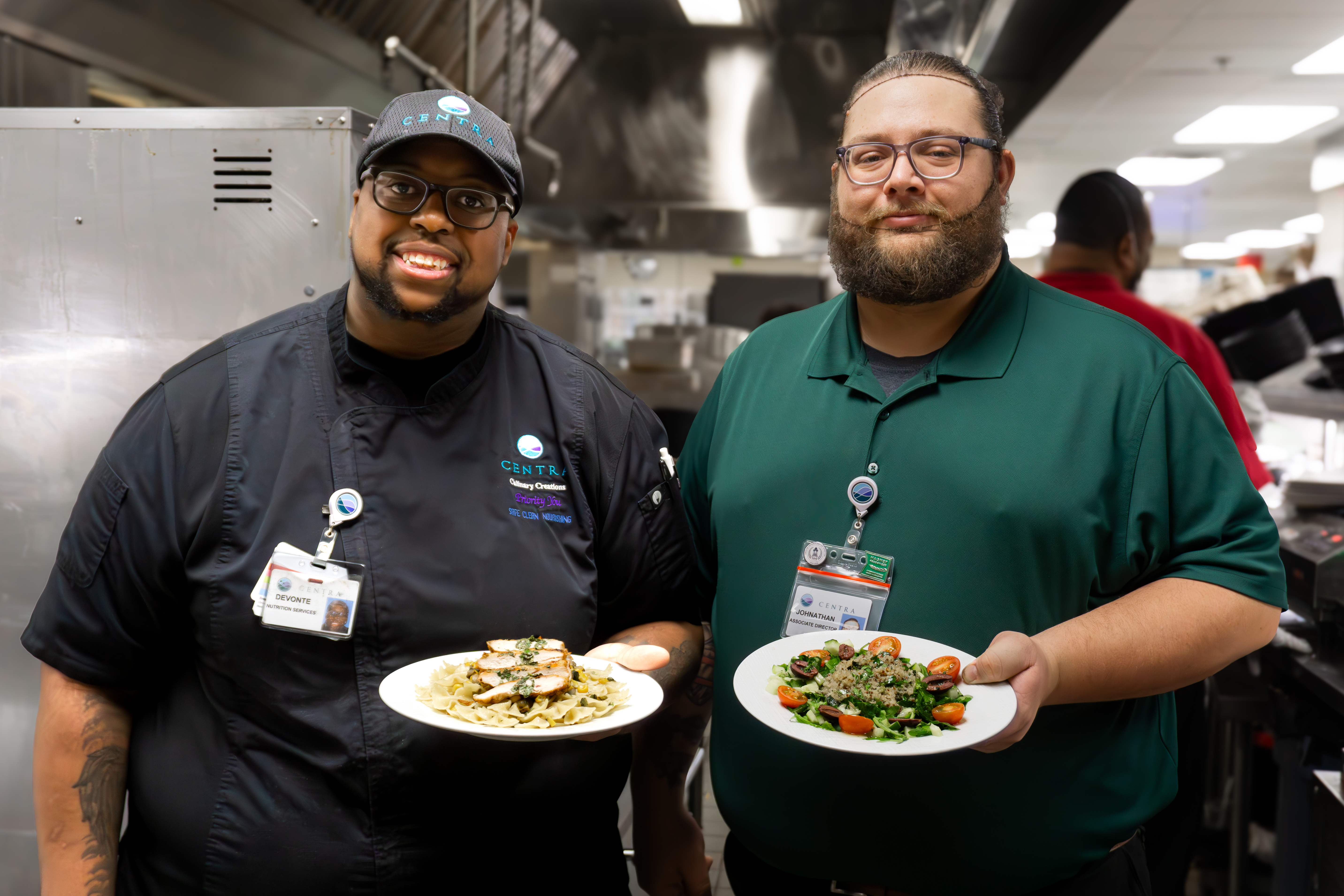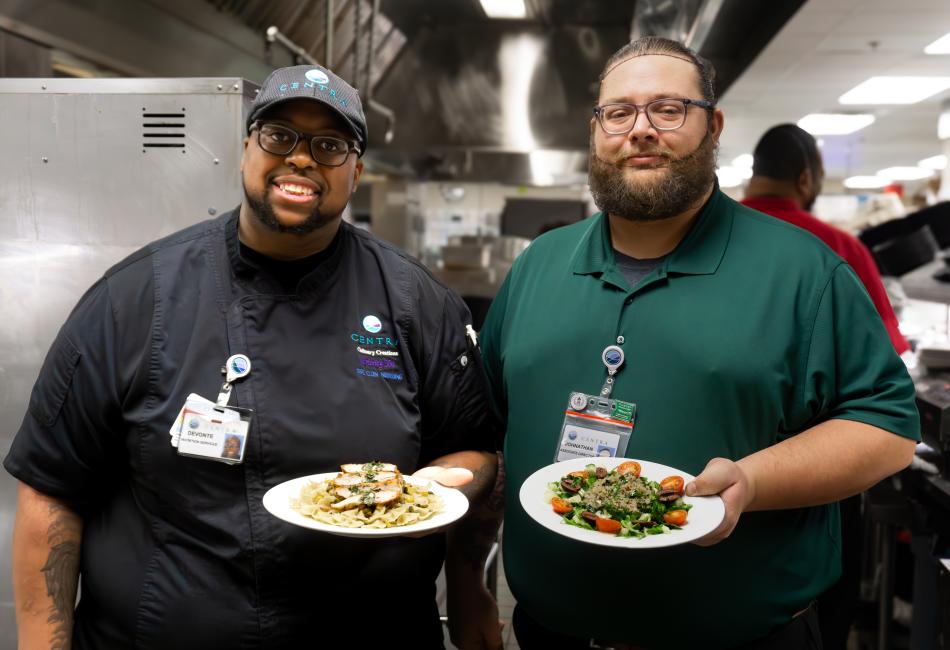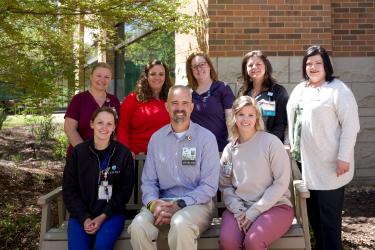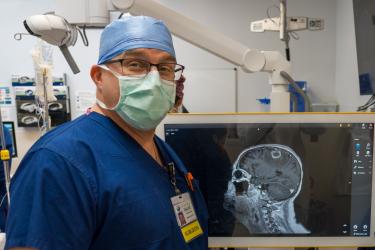Thanks to donor support, those living with Alpha-Gal can take the cake – and other delicious foods, too. Funding provided by the Centra Foundation for a cookbook and guide is helping people in central Virginia access delicious recipes and important information as well as changing care. Efforts at Centra to support patients living with the tick-borne syndrome and the publication are also attracting the attention of some of the nation's top large healthcare systems, including Mayo Clinic, Cleveland Clinic, Johns Hopkins, Duke Health and St. Jude Children’s Research Hospital.
As an avid hunter, a farmer who raises goats and pigs, and the associate director of nutrition services for Centra Lynchburg General Hospital, Johnathan Martin was more than a little concerned about being able to live his best life after he was diagnosed with Alpha-Gal.
“I wondered if this diagnosis was going to make me lose my identity,” he shared.
He had questions about how he would be able to do a job that includes handling, cooking and testing foods that could spark an allergic reaction, and what the diagnosis would mean for his hobbies.
Fast-forward a few years and he now knows that the diagnosis is “not the end of the world.” Moreover, he is putting his knowledge and experience to work for patients and visitors.
Johnathan is one of the authors of a new Centra cookbook and guide created to help people in central Virginia learn more about living with Alpha-Gal and how to manage their diet if they have been diagnosed. His story is on page 4 of the publication, and he contributed many of the recipes.
The development, initial printing and free patient distribution of “A Cookbook & Guide for Alpha-Gal” was funded by the Centra Foundation. It is also available for purchase in some Centra gift shops.
Developed by dietitians, nutrition services and medical staff at Centra, the book features a variety of recipes for people with Alpha-Gal. Although the recipes are intended only to provide general information and may need to be adapted based on individual needs, many people are finding the recipes and information helpful.
Recipes include snacks, salads, soups, entrees and desserts. Readers can learn how to make dairy-free lemon bars, salmon cakes, dairy-free biscuits and turkey gravy, and more.
“When nutrition, dietary and medical staff work together, delicious things happen,” said Tiffany Covarrubias-Lyttle, MSN, RN, director of cultural integration. “Since rolling this out, we are giving it to every patient who comes through our system with Alpha-Gal. We had a gentleman who started weeping when he received it. He was like, ‘I finally feel seen.’”
Thanks to the effort, Centra is also offering Alpha-Gal-friendly menu options for patients and visitors at hospitals.
“In the back of the guide it emphasizes that you are not doing this alone,” Tiffany said. “We want to support our neighbors who are affected and who need Alpha-Gal-friendly recipes and menu items.”
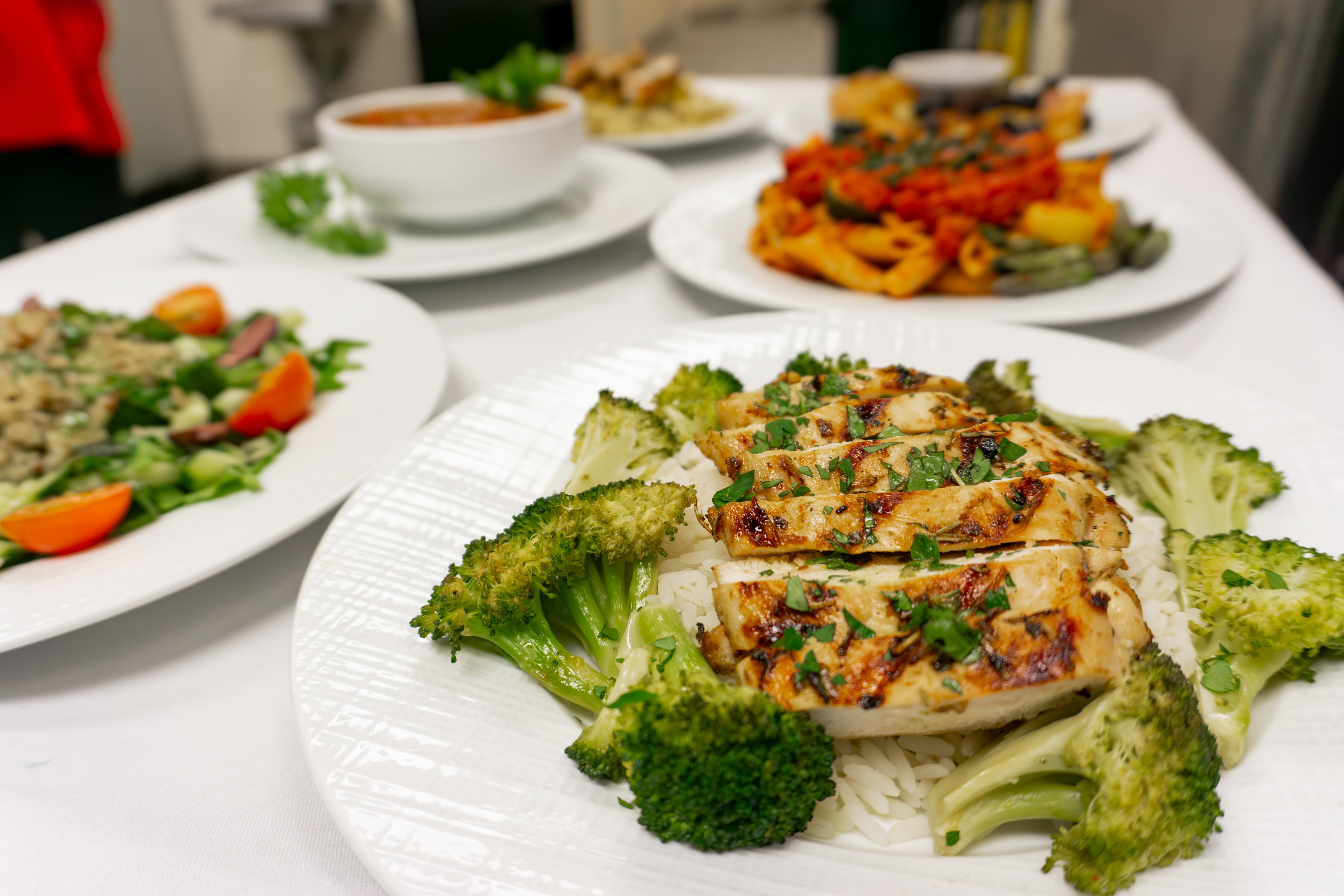
A recipe for health systems across the country
According to the CDC in 2024, approximately 450,000 people in the United States live with Alpha-Galactose Syndrome, commonly referred to as Alpha-Gal. It is a tick-borne syndrome that “is often called an ‘allergy’ because of how people react to Alpha-Galactose, a sugar naturally found in mammals,” according to the cookbook.
A disproportionate number of people with Alpha-Gal live in our local communities due to the environment. Estimates are that 37% of people living with the syndrome are in central Virginia. Last year, Centra reported 2,136 cases systemwide.
With so many people in our community affected, “this was something our community desperately needed,” Tiffany said. “Right now, Centra is caring for about 18 people each day who have been diagnosed with Alpha-Gal. Other hospital systems have reached out to us about our efforts since it is a growing concern.”
Health systems that have reached out to learn about efforts at Centra include Mayo Clinic, Cleveland Clinic, Johns Hopkins, Duke Health and St. Jude Children’s Research Hospital.
“Our nutrition teams have also been submitted for an award for this work,” she added.
The public launch for the cookbook was held in April at Lynchburg Regional Business Alliance. The event featured a panel discussion with experts from Centra who contributed to the publication, a live cooking demonstration, educational sessions and free copies.
“Many people think Alpha-Gal means they cannot eat beef or pork. However, it’s far bigger than not eating meat,” Tiffany said. “Foods and non-foods that can cause a reaction include cheese, butter, gelatine, gel capsules and more. Latex is also sourced from animal products, so we had to create a policy around it. All of this will help support our Alpha-Gal patients and community.”
The guide also covers prevention tips, treatment options and how to safely remove ticks.
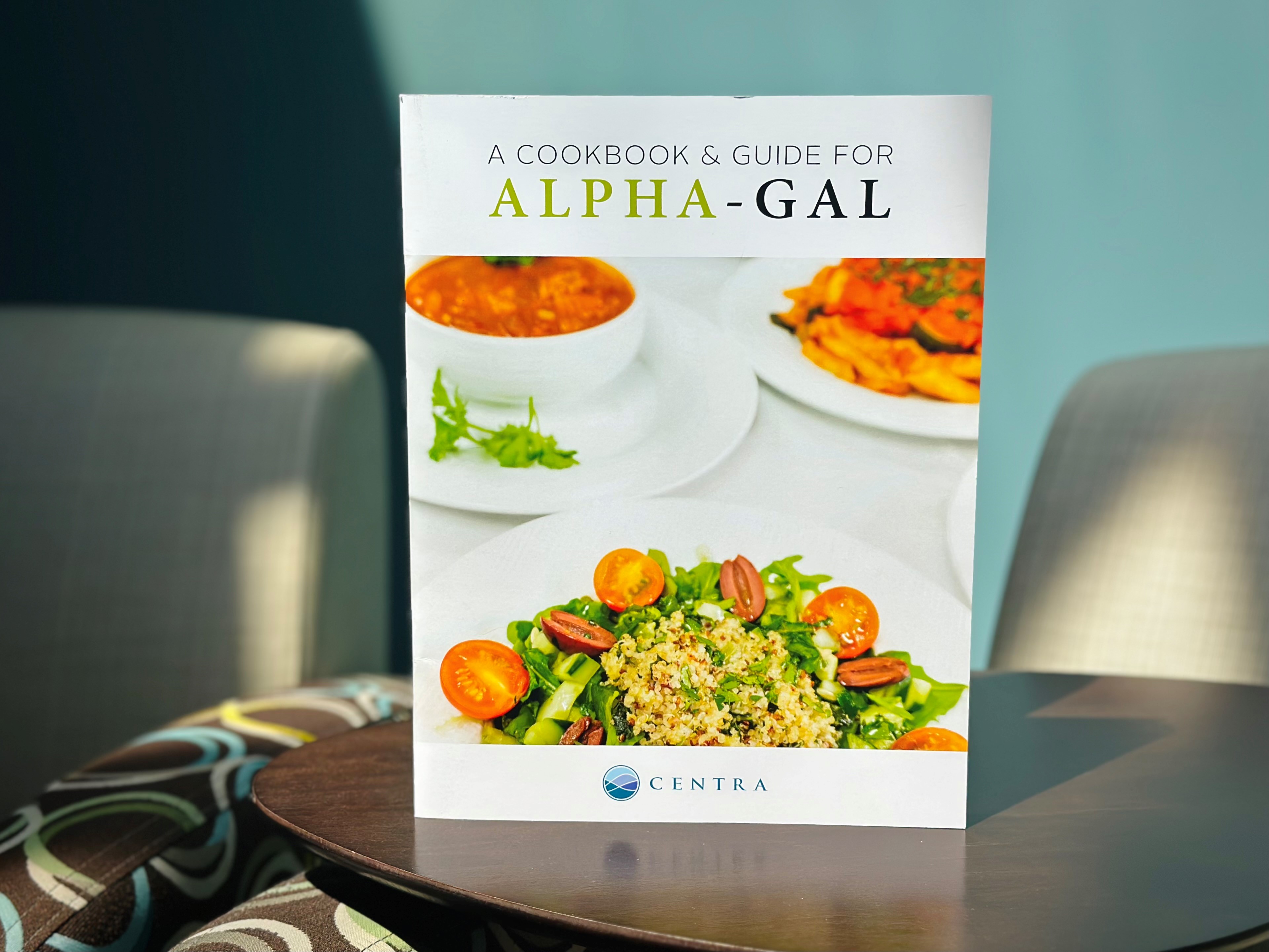
A full plate
Johnathan says he has actually noticed some positive changes to his health recently with his new diet. Professionally, he is pleased that he can create quality meals for patients with Alpha-Gal and understand their needs. He is also happy that he has been able to continue with his personal hobbies.
“I still love to hunt and raise farm animals,” he shares.
And he has encouragement for those living with the diagnosis. It is possible to “get used to eating differently and learn to love all the new food alternatives that are now available.”
Just add a little creativity.
Your next gift can make a positive impact on the health and well-being of people in your community.
Make a gift

